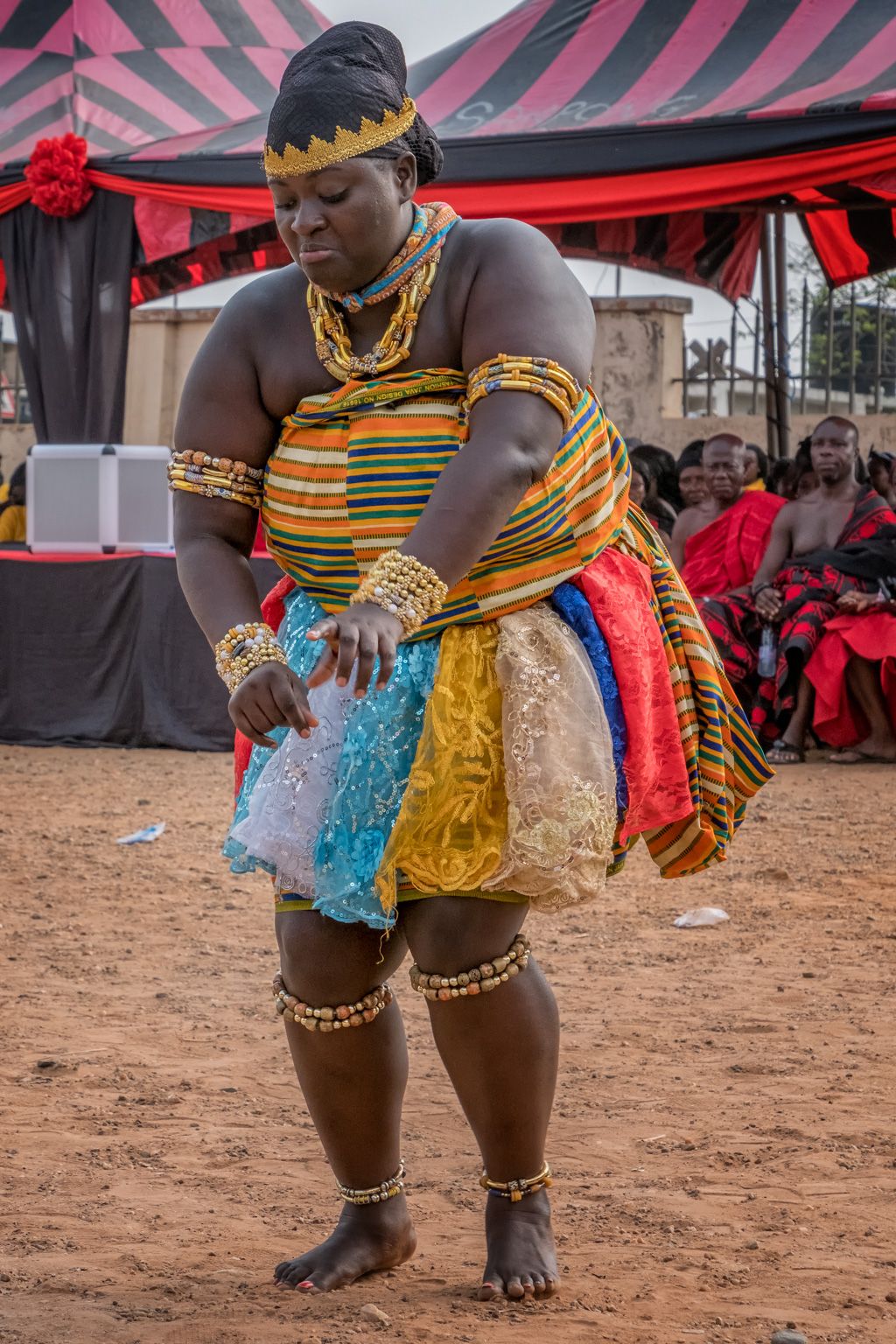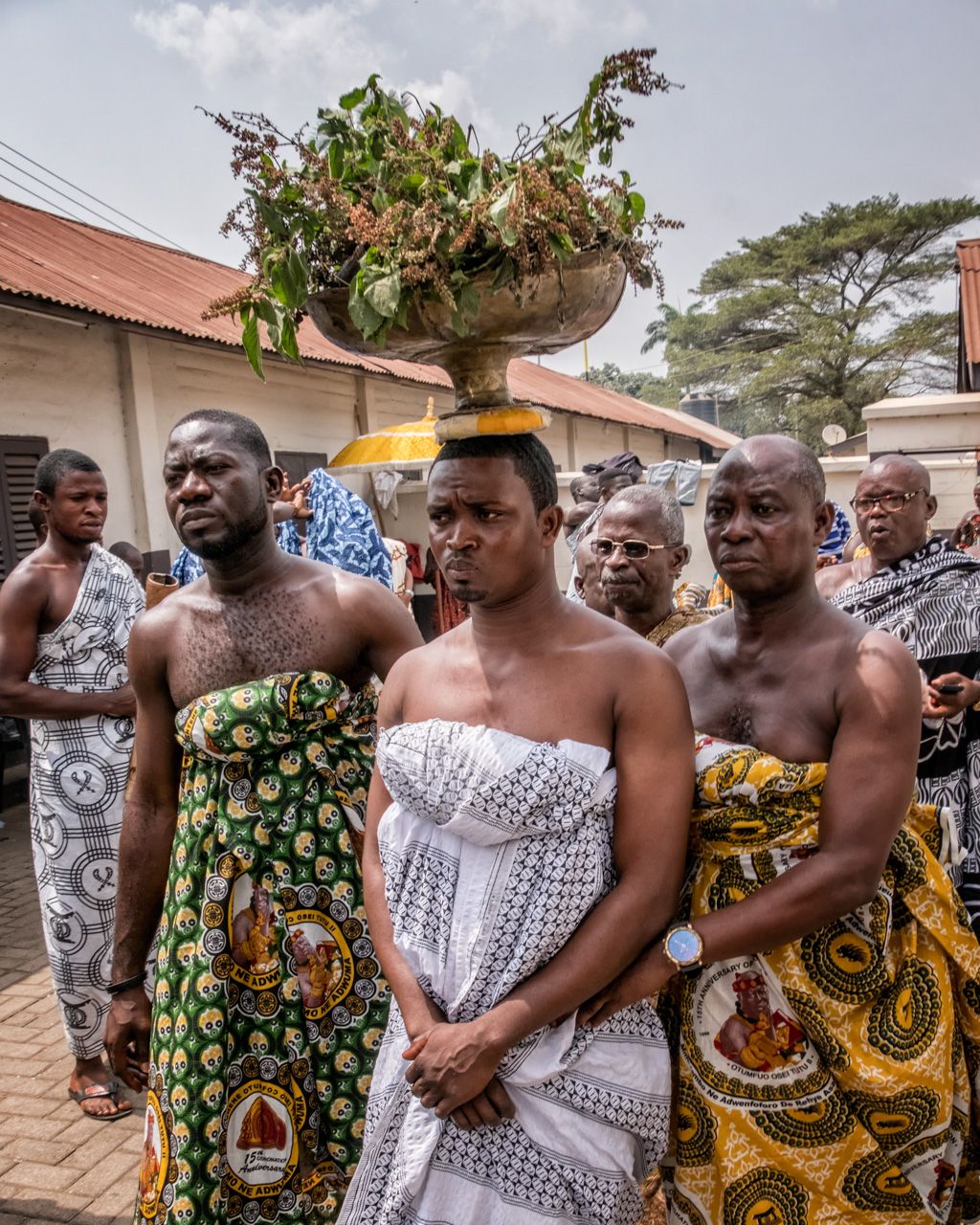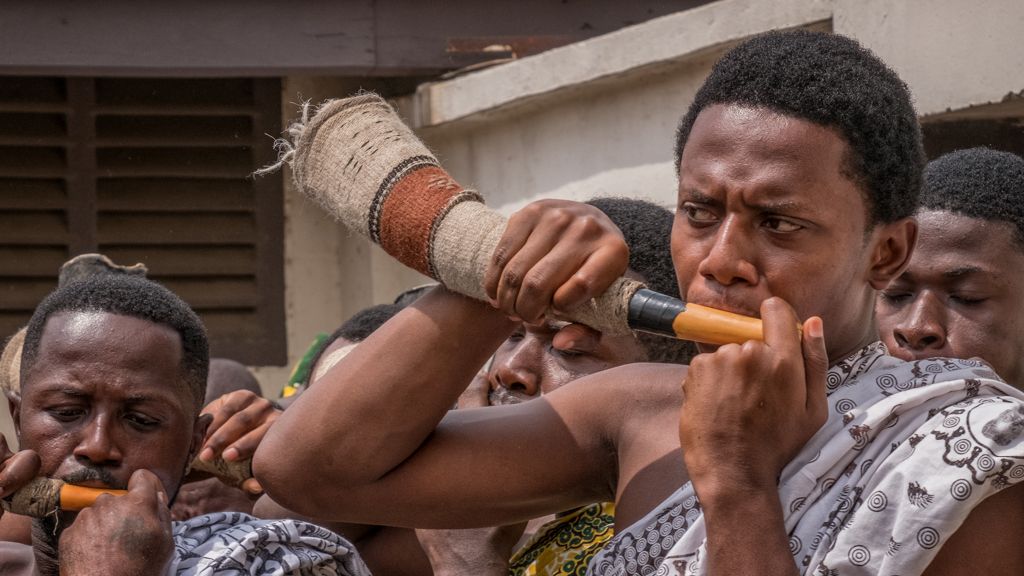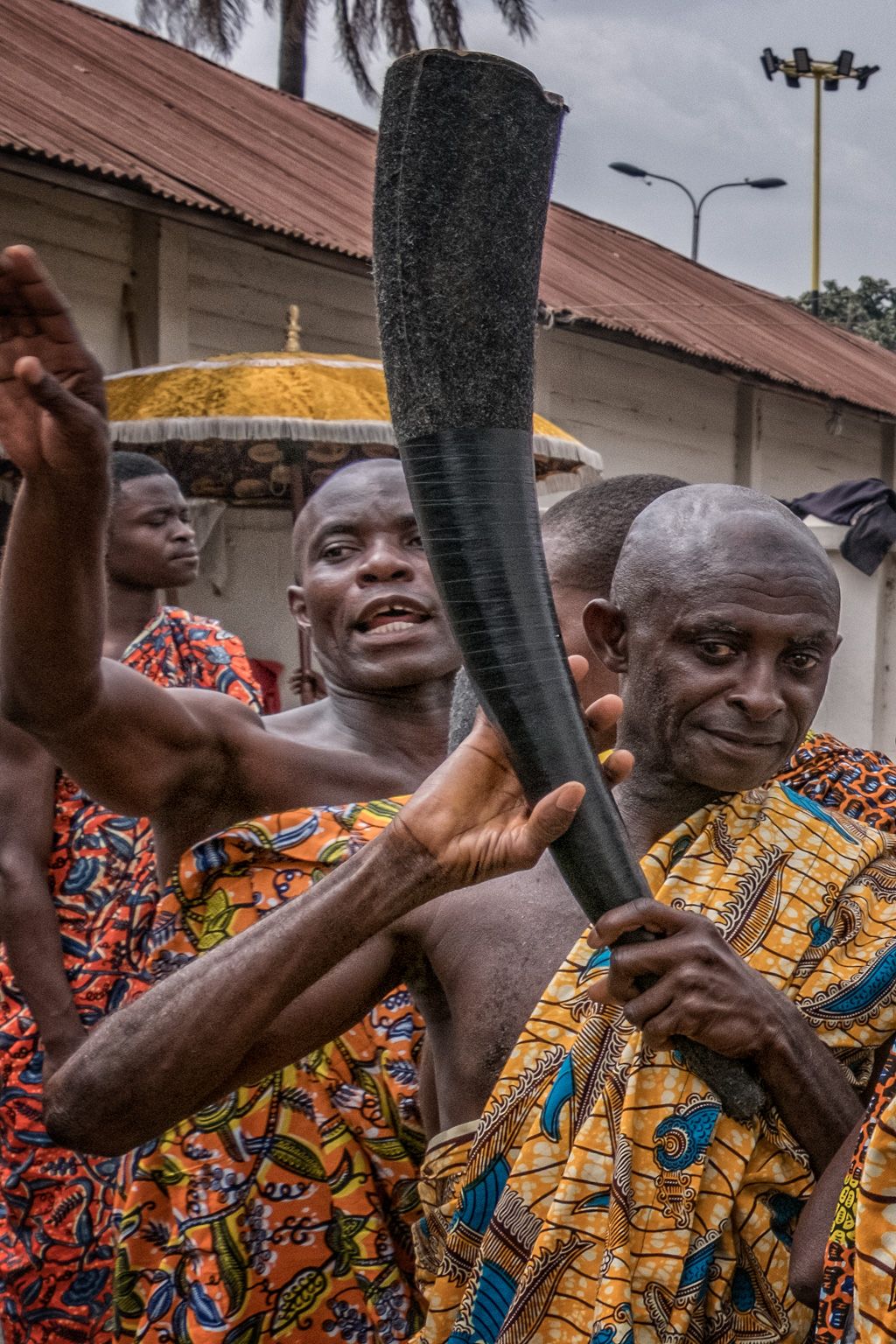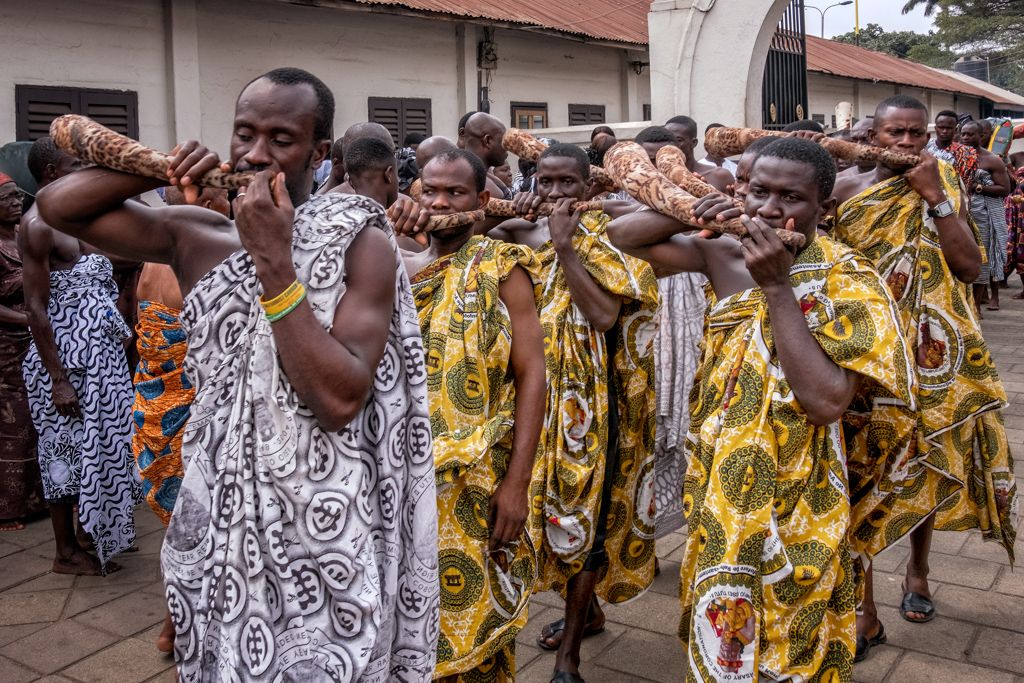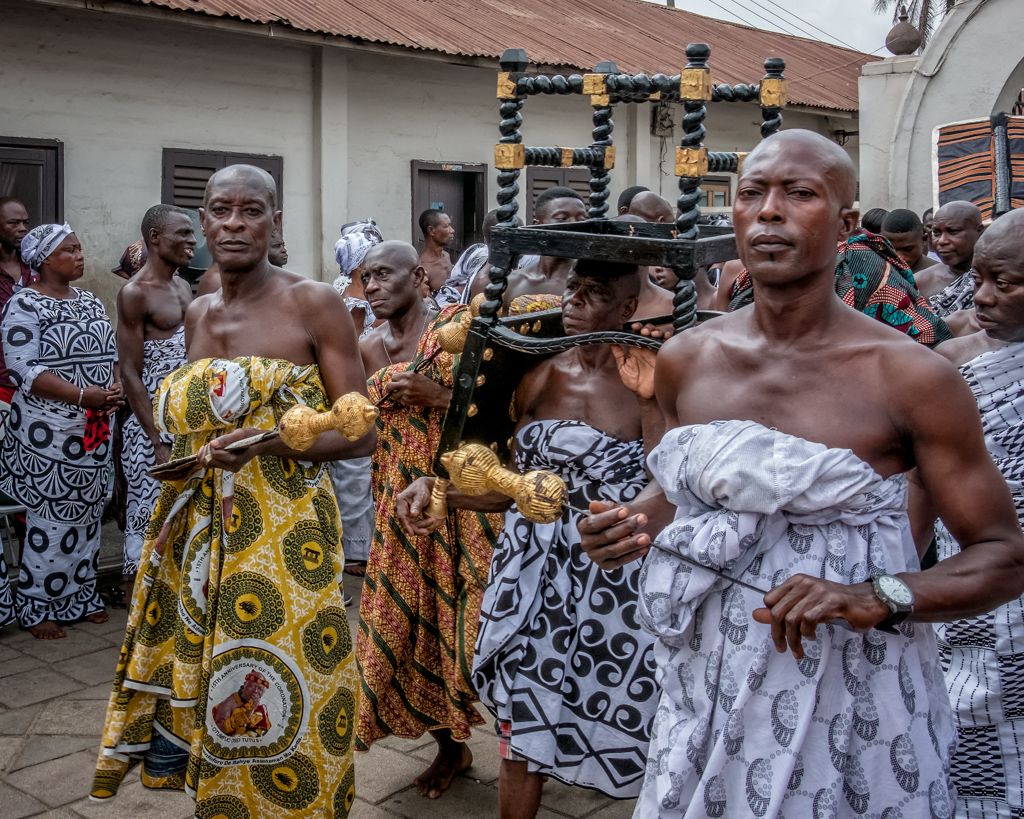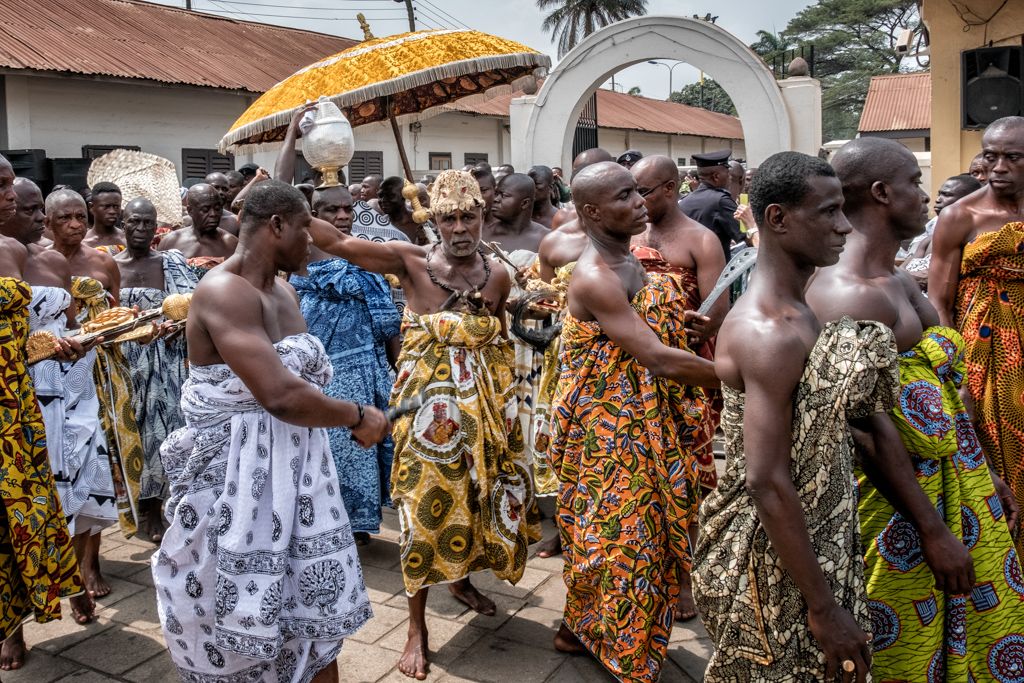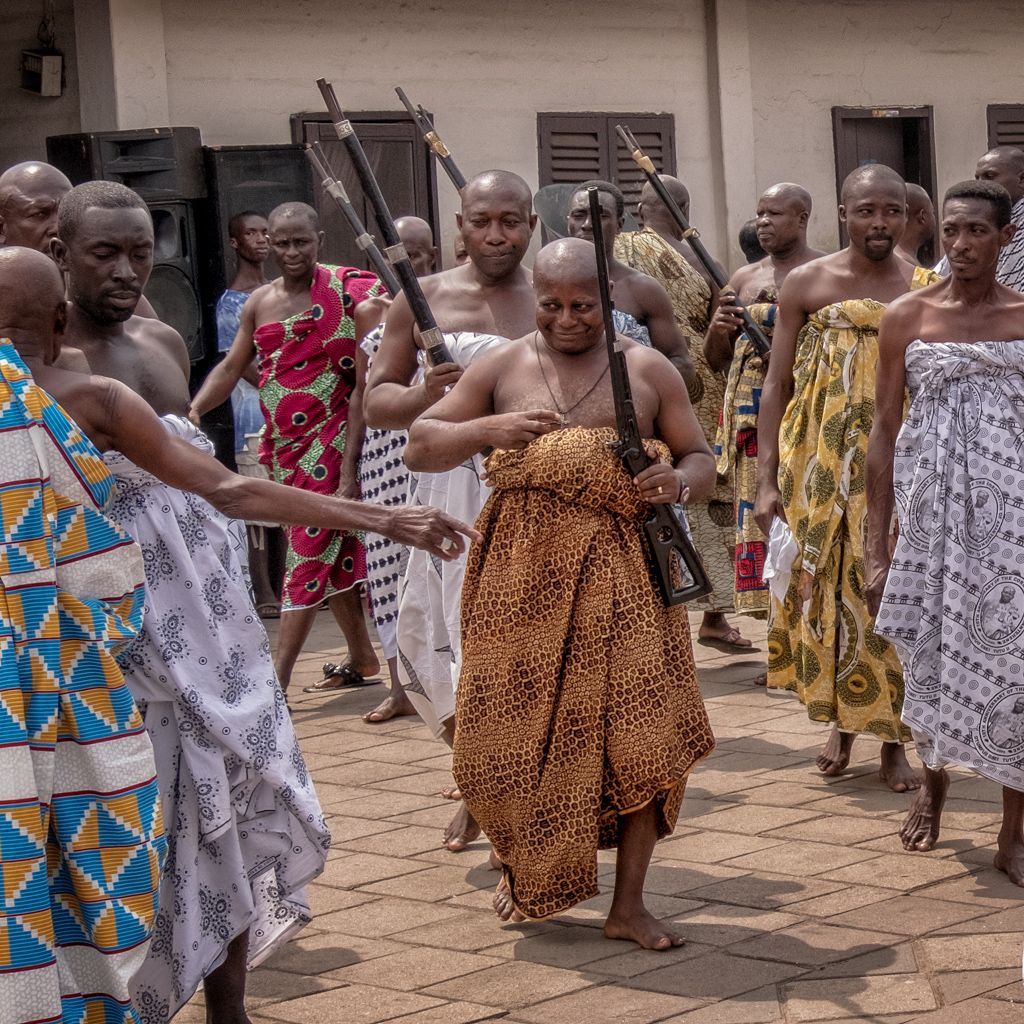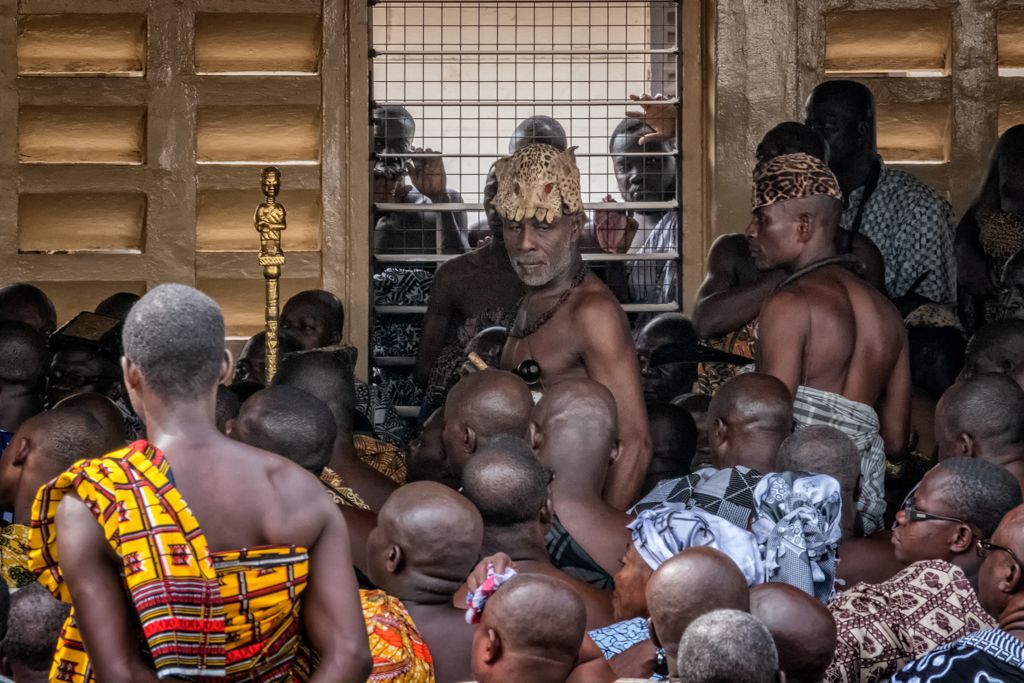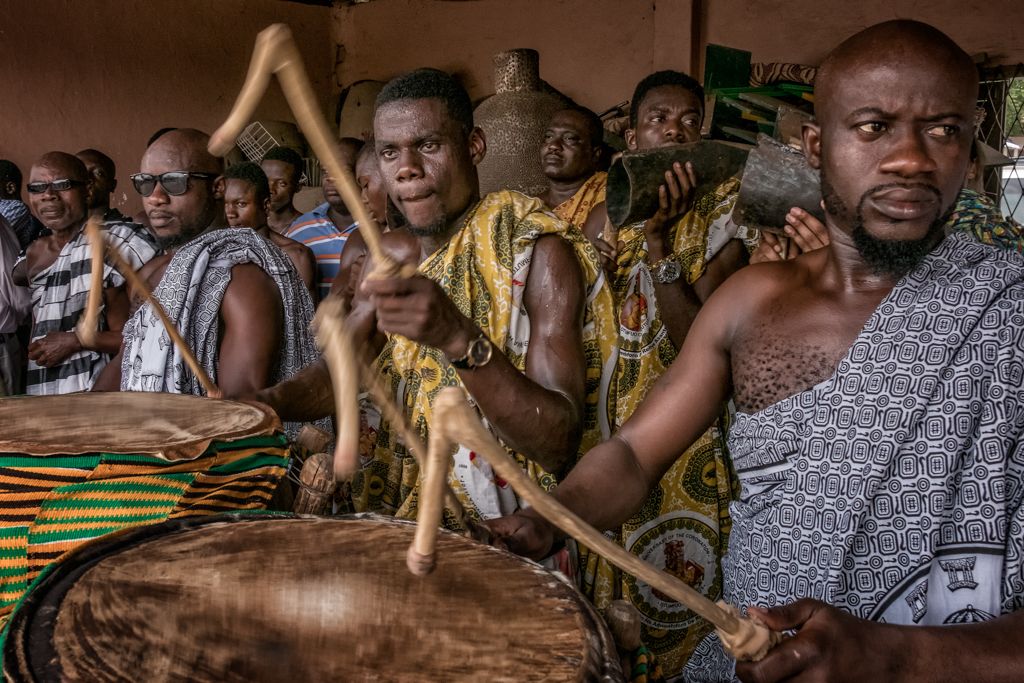GHANA: Akwasidae—An Asante Royal Ritual
Akwasidae is a major periodic festival of the Asante (or Ashanti) people of central Ghana, celebrated on every sixth Sunday in Kumasi, the administrative and cultural heart of the Asante kingdom since its founding in the late seventeenth century. Akwasidae is focused on honoring the spirits of their dead rulers as well as the current king, in order to insure the continued collective welfare of the kingdom. The Asante are noted not only for their wealth and business acumen, founded upon the gold trade, but also for their arts (notably textiles and gold ornaments) and the sophistication of their political and judicial institutions. The Asante kingdom was unified in the late seventeenth century, and through its wealth and military prowess extended its territories to the coast and beyond the boundaries of present day Ghana. Subjected by the British in the late nineteenth century and incorporated into the Gold Coast colony, the kingdom was subsequently restored to self-rule and eventually entered into a state union with Ghana upon independence in 1957. The Asante maintain a powerful ethnic and national identity within contemporary Ghana. The unifying symbol of the kingdom was and remains the Golden Stool, said to have descended from the heavens into the lap of the the king or Asantehene at the time of the kingdom’s founding, and imbued with the collective spirit of the Asante people. Conspicuous Akwasidae events include drumming, singing, dancing, and the blowing of horns. A sacrificial rite is performed within the royal mausoleum, and the Asantehene holds court with his subordinates, where he is greeted by large numbers of his subjects. The entry of the king into the open court is preceded by members of his retinue, some armed with swords or rifles or carrying spears and shields or ritual objects, and led by a man carrying a pot of talismanic plants to ward away evil spirits.

